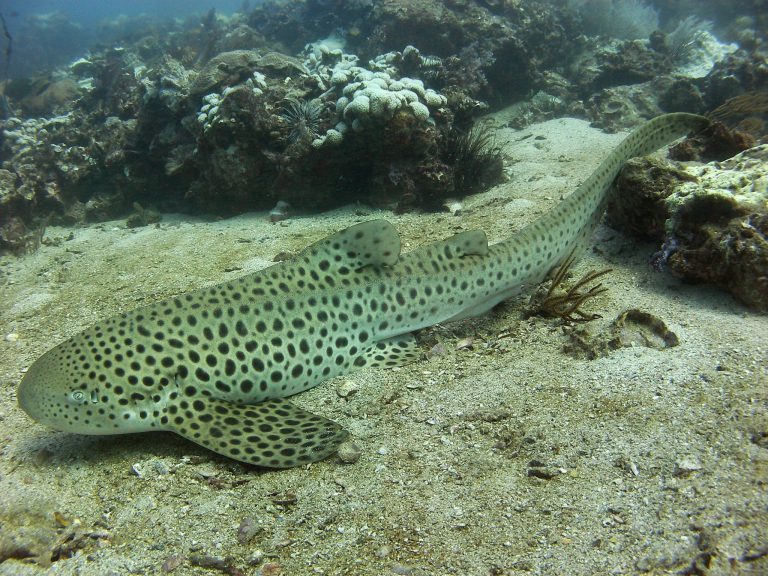
A recent study from the Scripps Institution of Oceanography and the Birch Aquarium has found that scent is a crucial sense in the process of navigation among the Leopard Shark species.
The experiment, administered under controlled conditions, found that sharks with an unimpaired sense of smell were able to return to their habitats far more efficiently than those with a defective sense of smell. Dr Andrew Nosal- postdoctoral researcher at the Scripps Institution- and colleagues published their findings in the journal PLOS ONE on Wednesday.
Mystery Solved? #Sharks Find Their Way Home Via Their Sense of Smell https://t.co/vl3klnP82x #oceans #fish pic.twitter.com/g5UhMaPvnO
— Assaad Razzouk (@AssaadRazzouk) January 8, 2016
“We were not necessarily surprised to find that this remarkable navigation ability is mediated by smell, at least in part,” said Nosal. “Sharks were already known for their keen sense of smell, and we know other animals use smell for navigation, such as salmon, birds and insects. It had simply not been experimentally demonstrated for sharks in the open ocean until now.”
Leopard Sharks prefer to make their habitats in coastal waters or closed bays, but can swim colossal distances with impressive efficiency, often following perfectly straight routes. Up until now it has not been clear how the animals travelled so effectively.
Could they mystery of how sharks navigate been solved?https://t.co/0I6efHZNNM pic.twitter.com/DVmL9VrCTY
— Oceana (@Oceana) January 7, 2016
In order to test the hypothesis, scientists captured 25 Leopard Sharks near the shore line before setting them loose again five miles offshore. Approximately 50 percent of the Sharks had their sense of smell temporarily impaired. The scientists then tracked the creatures’ journey home using acoustic technology.
The study found that on average, control Sharks wound up 62.6 percent closer to shore following a four hour period, whereas those who had been impaired ended up just 37.2 percent closer. Furthermore, the routes taken by the unimpaired sharks were significantly more direct.
Leopard sharks navigate with their nose https://t.co/oA7eQ15zCC pic.twitter.com/kNIzRgzhy1
— Luiz Rocha (@CoralReefFish) January 7, 2016
“We were amazed by the Sharks’ ability to navigate back to shore- along nearly straight paths, no less- after being taken from their home, just outside the surf, and released in unfamiliar and hostile territory in the middle of the open ocean. Even Sharks that happened to swim away from shore initially made corrective U-turns within 30 minutes of release,” said Nosal.
“Even the movements of Sharks with their sense of smell blocked were biased toward shore, suggesting other senses also play a role,” added Nosal. “Which senses are most important? Which senses are backups to other senses? This will also require more fieldwork and controlled laboratory studies.”
Additional reporting by The Christian Science Monitor.
Image via Shutterstock.
Liked this? Then you’ll love these…
Scientists from NYU advance on the causes of Autism
University scientists uncover new way of determining whether planets can harbour life







